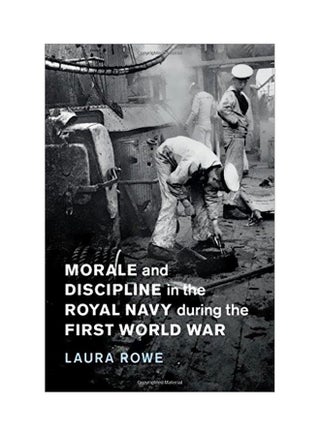| المراجعة التحريرية | Laura Rowe's book fills major gaps in the multidisciplinary study of military endurance and in the historiography of the First World War. A meticulously researched examination of the Royal Navy's resilience during the hard war years, this is among the first modern in-depth analyses of morale in maritime conflict. Essential reading.' Alexander Watson, author of Enduring the Great War. Combat, Morale and Collapse in the German and British Armies, 1914-1918 'Laura Rowe's book makes us rethink the relationship between British society and the Royal Navy during the First World War. An important contribution to the 'new naval history'.' Jan Ruger, author of Heligoland: Britain, Germany, and the Struggle for the North Sea 'This careful, eloquent study of morale and discipline shows how, and why, the Royal Navy had its own, effective ways of handling the stress of war in 1914-18. At last, we have a study that places British sailors where they belong - at the heart of the Great War.' John Horne, Emeritus Fellow, Trinity College Dublin `Laura Rowe's book fills major gaps in the multidisciplinary study of military endurance and in the historiography of the First World War. A meticulously researched examination of the Royal Navy's resilience during the hard war years, this is among the first modern in-depth analyses of morale in maritime conflict. Essential reading.' Alexander Watson, author of Enduring the Great War. Combat, Morale and Collapse in the German and British Armies, 1914-1918 `Laura Rowe's book makes us rethink the relationship between British society and the Royal Navy during the First World War. An important contribution to the `new naval history'.' Jan Ruger, author of Heligoland: Britain, Germany, and the Struggle for the North Sea `This careful, eloquent study of morale and discipline shows how, and why, the Royal Navy had its own, effective ways of handling the stress of war in 1914-18. At last, we have a study that places British sailors where they belong - at the heart of the Great War.' John Horne, Emeritus Fellow, Trinity College Dublin |
استرجاع مجاني وسهل
أفضل العروض





